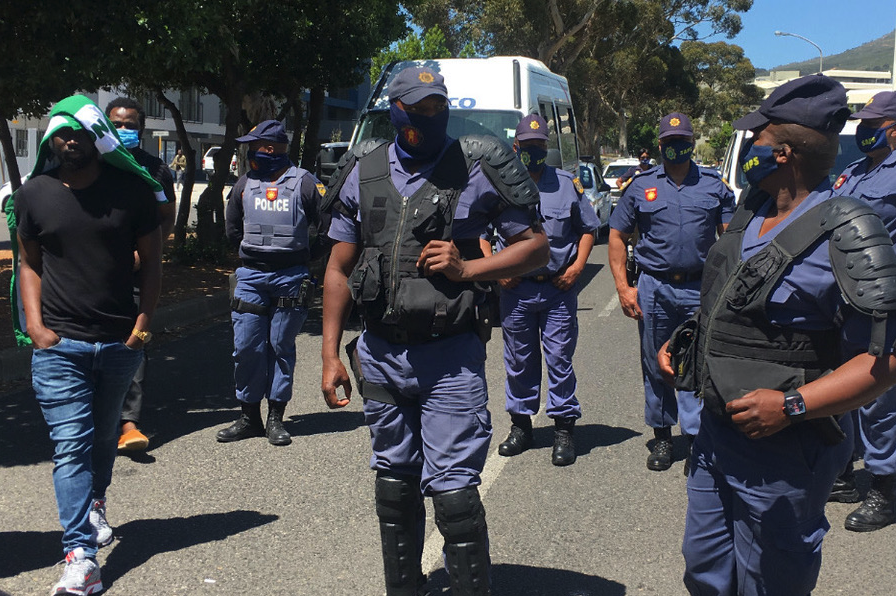
Oct 26, 2020 | News
The ICJ and Lawyers Alert today called on the Nigerian authorities to undertake immediate independent and thorough investigations into credible allegations of extrajudicial killings by the military responding to mass protests against the SARS police unit.
Those responsible for criminal conduct must be brought to justice and held to account, the two organizations said.
The authorities must respect their international legal obligations under international law and cease the unlawful, unnecessary and disproportionate use of force in response to Nigerians’ lawful protest actions.
Protest actions have escalated over the last two weeks as Nigerians have staged a series of protests under the #EndSARS movement. Thousands of people joined the demonstrations, demanding an end to police brutality and corruption.
Reports confirm that more than 56 people have died over the two weeks of protest actions, including 38 protesters who were killed, on the 20 October alone, as a result of the Nigerian military opening fire on thousands of peaceful protesters.
“The right to peaceful assembly is guaranteed under international law, including the International Covenant of Civil and Political Rights (ICCPR) which Nigeria has acceded to. Nigeria’s brutal responses to the peaceful demonstrations, including the use of lethal force on force protestors, not only violates this right but also their right to life,” said Kaajal Ramjathan-Keogh, ICJ Africa Regional Programme Director.
Lawyers Alert Executive Director Rommy Mom said: “The Nigerian government’s responses to the protests have undermined the rule of law. Groups and persons should not be afraid to approach the Judicial Panels of Inquiry to lay their grievance towards identification of culpable SARS officers for appropriate sanctions and the compensation of victims.” The organizations recall that under international law, the use of lethal force by law enforcement officials is permissible only when strictly necessary to protect life.
Police in the SARS unit are credibly alleged to be responsible for a widespread practice of torture and other serious human rights violations.
In addition to ending these violent attacks on protestors, the ICJ and Lawyers Alert call on the Nigerian government to address the demands of protestors and embark on comprehensive reform of the police, with emphasis on oversight functions, tethering oversight to civil society groups, the National Human Rights Commission and the constitutional oversight body of the Nigeria police.
“These protests have gained momentum outside Nigeria and have extended beyond the local borders to Ghana, United Kingdom and South Africa. The world’s attention is currently on Nigeria, as the global support for protestors rise amidst further police brutality. The Nigerian government must ensure that it respects and protects the human rights of all in accordance with its obligations under international law,” added Ramjathan-Keogh.
Background
Founded in 1992, the Special Anti-Robbery Squad (SARS) was mandated to “investigate cases involving armed robbery and kidnapping”. However, since its inception, there have been widespread complaints by Nigerians about the conduct of SARS This year Amnesty International issued a report, documenting at least 82 cases of torture, ill treatment and extra-judicial execution by SARS during the period of January 2017 and May 2020
In addition to the ICCPR, Nigeria is party to the UN Convention against Torture and the African Charter on Human and Peoples’ Rights (African Charter), which guarantees the right to life under Article 4 and the right to assemble freely with others under Article 11. These rights are also respectively protected under sections 33(1) and 40 of the Nigerian Constitution.
Article 6 of the ICCPR prohibits the arbitrary deprivation of life.
Principle 9 of the UN Basic Principles on the Use of Force and Firearms by Law Enforcement Officials affirm that:
Law enforcement officials shall not use firearms against persons except in self-defence or defence of others against the imminent threat of death or serious injury, to prevent the perpetration of a particularly serious crime involving grave threat to life, to arrest a person presenting such a danger and resisting their authority, or to prevent his or her escape, and only when less extreme means are insufficient to achieve these objectives. In any event, intentional lethal use of firearms may only be made when strictly unavoidable in order to protect life.
Contact
Kaajal Ramjathan-Keogh, Director of ICJ’s Africa Regional Programme, c: +27845148039, e: kaajal.keogh(a)icj.org
Tanveer Jeewa, Communications Officer, tanveer.jeewa(a)icj.org
Homepage photo credit: Tshwanelo Mathwai
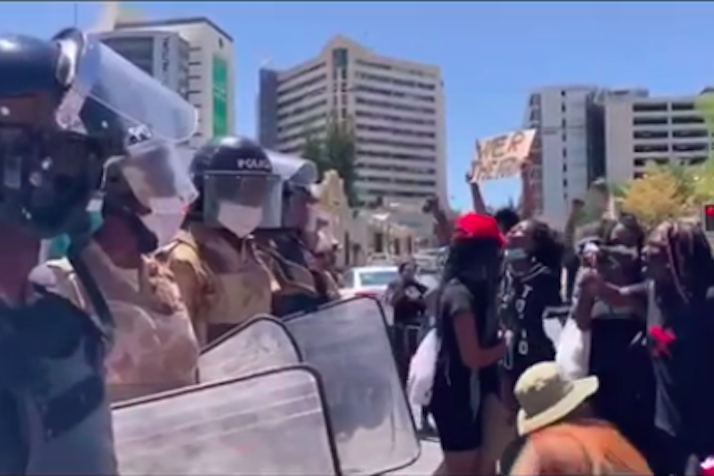
Oct 13, 2020 | News
Today the ICJ condemned the apparent widespread ill-treatment and arbitrary arrest of peaceful demonstrators protesting gender based violence on Saturday 10 October in Windhoek.
The demonstrators were allegedly met with tear gas, and a number of them were subject to serious beatings by police forces.
Some 25 persons, including journalists, were arrested during the demonstrations. They were initially charged with breaching a law forbidding the public gathering of more than 50 people, though the charges were dropped on Monday.
The ICJ is calling for a prompt, thorough, impartial and effective investigation into the alleged police abuse, in line with Namibian law and the countries international legal obligations.
Officials responsible should be held accountable.
“Instead of taking seriously the demands made by the protestors and to take steps to ensure that gender based violence is addressed in a meaningful and constructive way, the police themselves appeared to have engaged in violent action against those exercising their rights to peacefully assembly and express their view,” said Kaajal Ramjathan-Keogh, ICJ Africa Regional Programme Director.
The ICJ also called on the authorities to protect the right of individuals in the country to peacefully and protest, rights which are protected under Namibia’s Constitution and international law.
The ICJ said that the Public Gatherings Proclamation Act, requiring prior permission for assemblies of more than 50 people in public spaces, should be repealed or revised, as incompatible with its international legal obligations.
The ICJ has also called on Namibia to address the underlying concerns raised by the protests, notably that during the COVID-19 pandemic, gender-based violence has been exacerbated during lockdown restrictions.
In Namibia, reports of femicide and gender based violence steadily increasing and on average “three rape cases were reported to the Namibian police every day for 18 months.”
Background
The recent #ShutItAllDown and #ShutitAllDownNamibia movements, spontaneously started on social media after the killing of a young woman, Shannon Wasserfall, have led to a series of protests against government’s failure to adequately address the scourge of gender based violence in Namibia.
The protestors, predominantly young women, last week handed over a petition to government which includes a list of 24 demands. raising concerns about the poor State response to gender-based violence in Namibia.
The protestors allege that Namibian police are “negligent and nonchalant” with investigating violent crime committed against women. They are demanding that government do more to protect women against such violence, including by ensuring that survivors of gender-based violence have access to justice.
The rights to freedom of assembly and expression, freedom from ill-treatment, and prohibitions on arbitrary arrest are guaranteed under the international human rights treaties to which Namibia is a party, including the African Charter on Human and Peoples Rights and the International Covenant on Civil and Political Rights, and the Convention against Torture, as well as the Namibian Constitution.
Contact
Kaajal Ramjathan-Keogh, Director of ICJ’s Africa Regional Programme, c: +27845148039, e: kaajal.keogh(a)icj.org
Nokukhanya Farisè, Legal Adviser, nokukhanya.farise(a)icj.org
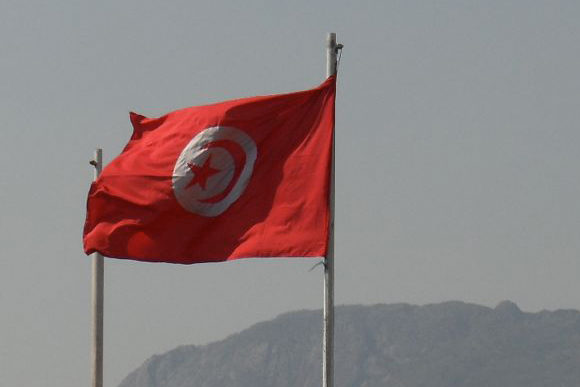
Oct 6, 2020 | News
The Tunisian Parliament should amend or reject the revised Draft Organic Law No. 25-2015 on the protection of security forces scheduled for discussion in Parliament today, said the ICJ. The Law if adopted would reinforce impunity for violations committed by security forces and undermine the rule of law and human rights.
The revised Draft Law was approved by the Parliamentary Commission in July 2020, following unsuccessful attempts to adopt it in 2015 and 2017.
Article 7 of the Draft Law provides for the exoneration of security forces from criminal responsibility for using lethal force to repel attacks on a security building, when the force is necessary and proportional to the danger posed to the building. In 2017, the ICJ and other organizations urged Parliament to reject a prior draft which included the same provision.
“More than 10 years after the uprising, Tunisia’s security forces continue to enjoy impunity for decades of serious human rights violations,” said Said Benarbia, the ICJ’s MENA Programme Director.
“The Parliament should adopt all the effective measures at its disposal to end such impunity, not entrench it by allowing the use of lethal force when it’s not strictly necessary to protect lives.”
Article 7 of the Draft Law would preserve the operation of Law No. 69-04, which permits the use of firearms to defend property, “mitigate” a resistance, or stop a vehicle or other form of transport in the context of public meetings, processions, parades, public gatherings, and assemblies. It allows for the use of lethal force to disperse an unlawful gathering where other means of dispersal have failed.
Under international law, including the United Nations Basic Principles on the Use of Force, the intentional use of lethal force must be reasonable, necessary and proportional, and is only permissible if strictly necessary to protect life from an imminent threat to life, not a threat to property.
In the context of non-violent assemblies, the use of force should be avoided and, where unavoidable, restricted to the minimum extent necessary against only those individuals posing an imminent threat of death or serious injury.
The Draft Law appears to preserve an exemption under article 42 of the Criminal Code and Article 46 of Law No. 82-70 on the Statute of Internal Security Forces of 6 August 1982. Article 42 of the Criminal Code provides that a person is not liable for crimes under the Criminal Code, including homicide, if their acts were carried out pursuant to other laws or orders from a competent authority. Article 46 of Law No. 82-70 limits this immunity in relation to orders given to officers of the Internal Security Forces by requiring the orders be given “by their superior in the framework of legality.” Under international law, superior orders cannot serve as a ground of defence to a crime of unlawful killing by a State agent, such as a member of a security force.
“The Tunisian Parliament should reject the Draft Law and conduct a complete review of all laws regulating the conduct of the security forces to ensure they meet standards necessary to protect the population from the excesses demonstrated in the past,” said Kate Vigneswaran, the ICJ’s MENA Programme Senior Legal Adviser.
“Members of the Parliament should send a clear, unequivocal message that the impunity of the security forces can no longer be tolerated.”
Contact:
Said Benarbia, Director, ICJ Middle East and North Africa Programme, t: +41-22-979-3817; e: said.benarbia(a)icj.org
Kate Vigneswaran, Senior Legal Adviser, ICJ Middle East and North Africa Programme, t: +31-62-489-4664; e: kate.vigneswaran(a)icj.org
Tunisia-draft law security forces-News-2020-ARA (story in Arabic, PDF)
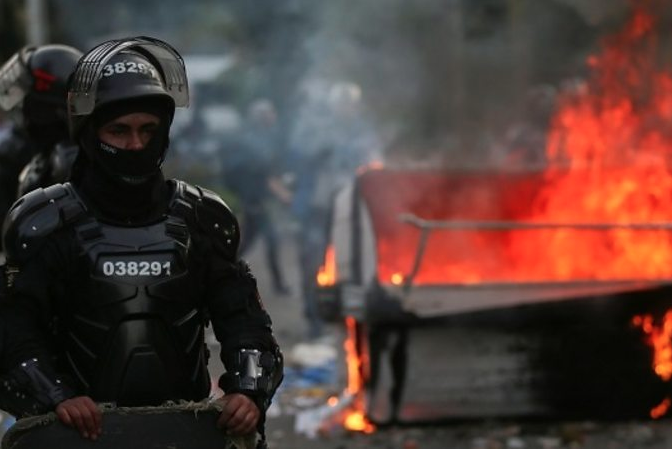
Sep 18, 2020 | News
Today, the ICJ called upon the responsible authorities to ensure that prompt, transparent, thorough, impartial and effective investigations are carried out of allegations of extrajudicial killings and other serious human rights violations by the Colombian police during recent street protests.
The ICJ stressed that any official responsible should be prosecuted and brought to justice and victims of any violations be provided an effective remedy and reparation.
From 9 September to 10 September 2020, mass protests against serious human rights violations by Colombian police took place in Bogota, following the death of Javier Ordóñez. Ordoñez died in police custody after he had been subjected to severe ill-treatment, including by prolonged taser shock.
The protests were met with acts of unlawful, unnecessary and disproportionate use of force by police. The protests left 13 people dead, and more than 200 injured.
The incidents have been condemned by the Inter-American Commission on Human Rights (IACHR), which pointed to allegations of unlawful detention and ill-treatment of persons arrested following the demonstrations. The UN High Commissioner for Human Rights has also expressed concern at the allegations the use of excessive force during the protests.
According to witness accounts, police opened fire against people who were protesting peacefully. Some of the victims killed were said to be people who had not taken part in the protests and died due to stray bullets. Some videos of police conduct have been circulated on social media.
Similarly, Bogota Mayor, Claudia López Hernández, has affirmed that she had handed over videos of police shooting indiscriminately against people during the protests to the Office of the Attorney General and other authorities. In addition, she shared part of the videos on her Twitter account.
The ICJ recalls that under international standards governing the use of force by law enforcement officials, lethal force may never be used unless strictly necessary to protect life.
The ICJ stresses that investigations must be impartial and the need for investigators to be independent of the police. Equally important, the investigations must take place within the civilian rather than the military justice system.
The ICJ is also concerned at the threats received by human rights lawyers who have been working working to document possible human rights violations during the protests.
Background
The protests were triggered by the death of Javier Ordoñez, who died at a police facility (Comando de Acción Inmediata, CAI), on the early morning of 9 September.
A video shows that before being transferred to the facility, Ordoñez was repeatedly shocked by policemen with a stun gun while on the ground and did not represent any threat to life or safety the police or other persons. Initial results of the investigation, including the autopsy report, indicate that Ordoñez was hit in the head, neck, shoulders, and chest inside the police facility.
On 11 September 2020, the Police and the Ministry of Defence offered an “apology” for any violation of the law that may have been committed by the police, without acknowledging any specific wrongdoing.
Subsequently, on 16 September, the Minister of Defence recognized that Javier Ordóñez was murdered by the police. Although he stated that the Police respect peaceful protests, he also said the protests of September 9 and 10 were a massive and systematic attack against the police.
Along the same lines, on 13 September 2020, the office of the Mayor of Bogotá held a ceremony of “forgiveness and reconciliation”. The ceremony had the participation of some of the victims, who demanded justice.
On 17 September 2020, the Office of the Attorney General filed arrest warrants against two policemen involved in the murder of Ordóñez. The warrants have been granted by a judge. Both policemen had been arrested.
In accordance with Colombia’s obligations under the International Covenant on Civil and Political Rights, investigations “must always be independent, impartial, prompt, thorough, effective, credible and transparent”.
The UN Basic Principles on the Use of Force and Firearms by Law Enforcement Officials require that any the use of force is exceptional, necessary, and proportional and that lethal force may only be used when strictly necessary to protect life.
Colombia has been recently facing a significant increase in serious human right violations and abuses, including unlawful killings. For example, since the Peace Agreement was signed in November 2016, there has been an upward trend in the killings, death threats, and harassments against human rights defenders.
As of December 2019, the UN Verification Mission in Colombia verified 303 killings of human rights defenders and social leaders since the signature of the Peace Agreement. So far, during 2020, the Office of the United Nations High Commissioner for Human Rights in Colombia has documented 47 killings of human rights defenders and is reviewing other potential 44 cases.
Contact:
Carolina Villadiego, Legal and Policy Adviser, Latin America. Email: carolina.villadiego(a)icj.org
Rocío Quintero M, Legal Adviser, Latin America. Email: rocio.quintero(a)icj.org
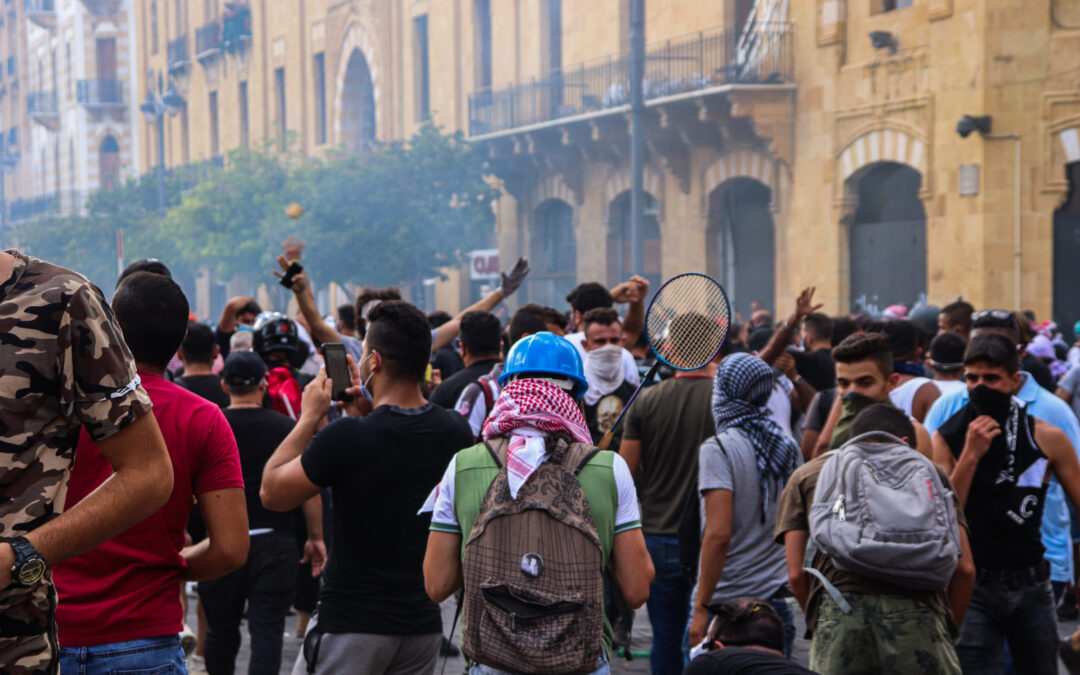
Aug 11, 2020 | News
The ICJ is concerned at reports that on 8 and 9 August, Lebanese security forces, including Internal Security Force (ISF) units, parliamentary police and the army, employed excessive and unlawful force against hundreds of protestors, resulting in the injury of more than 700 people and dozens of hospitalizations.
The ICJ called on the Lebanese authorities to protect the rights to freedom of peaceful assembly and expression and refrain from using excessive and unlawful force against protestors demanding justice for the 4 August explosions in Beirut’s port district.
The explosions devastated the city’s infrastructure and resulted in the death, injury and internal displacement of large numbers of its inhabitants.
The ICJ stressed that credible allegations of excessive and unlawful use of force in the context of the protests must be promptly, thoroughly and impartially investigated and those responsible must be held to account.
According to information available to the ICJ, at least 14 journalists and media personnel covering the protests were among the wounded.
According to reports, a policeman also died after falling down an elevator shaft while being chased by protesters. While there were reports that some demonstrators threw rocks and firecrackers at security forces, reports also indicate that the security forces’ response was indiscriminate and, in some instances, excessive.
“Many protestors in Lebanon continue to be met with excessive and unlawful force by security agencies, telling the same grim story of how the Lebanese authorities habitually respond to unwelcome political expression and the grievances of the Lebanese public,” said Kate Vigneswaran, the ICJ’s Middle East and North Africa Programme Senior Legal Adviser.
“The people of Beirut have the right to peacefully express their outrage, at alleged official malfeasance that apparently contributed to last week’s tragic devastation, and to expect security forces will comply with the law,” she added.
Information from ICJ interviews with three protestors, and substantiated by reports by multiple media and news agencies, reveal that security forces fired large quantities of tear gas, in addition to rubber bullets, at protestors in several locations in central Beirut, including a gathering of at least 10,000 people including children at Martyr’s Square and those who occupied Parliamentary and ministerial buildings.
Reports also indicate that live ammunition was fired by security forces during the protests, namely birdshot.
A protestor interviewed by the ICJ stated that he was shot in the arm by a rubber bullet and in the leg by a pellet gun, the latter lodging shrapnel into various parts of his body.
Social media reports reveal that some protestors were shot in the face and eyes with rubber bullets. The ISF has denied using rubber bullets.
According to another protestor, government loyalists attacked her in the presence of ISF officers and the army as she filmed scenes outside the American University Hospital, threatening her with violence and by breaking her mobile phone.
Similar reports of security forces indiscriminately beating and harassing protesters have surfaced on social media platforms.
International law, governing the use of force by law enforcement officers, which is binding on Lebanon, mandates that force is only permissible as a last resort for the sole purpose of protecting life or preventing serious injury from an imminent threat, if strictly necessary and only to the extent necessary for the performance of their duty.
All use of force must be discriminate and proportionate to the threat of harm.
The ICJ has called for a prompt, transparent, independent and impartial investigation into the 4 August explosions by a special, independent mechanism, given the documented lack of independence in certain parts of the Lebanese judiciary, which was echoed by other human rights organizations and members of the international community.
Lebanon’s President dismissed the call as “a waste of time” and instead urged the Lebanese judiciary to act swiftly to probe the incident.
Prime Minister Hassan Diab announced his cabinet’s resignation on Monday following widespread calls for the political establishment to resign from their posts following the explosion. Nine members of Parliament, two government Ministers and the Lebanese Ambassador to Jordan had also resigned from their posts over the weekend.
“The explosions were devastating for the people of Beirut, resulting not only in the loss of life and massive injuries, but severe curtailment of their rights to housing and health and their other socio-economic rights,” said Vigneswaran.
“Based on the response of the Lebanese authorities thus far, and given their poor track record in pursuing and realizing accountability, it is clear that there is an urgent need for a proper accountability mechanism to investigate the explosions and respond to victims’ demands and calls for justice. A change in government is not enough,” she added.
Contact
Kate Vigneswaran, Senior Legal Adviser, ICJ Middle East and North Africa Programme, t: +31-62-489-4664; e: kate.vigneswaran(a)icj.org
Download
Full story with additional information: Lebanon-Protests-News-Press releases-2020-ENG
Arabic version: Lebanon-Protests-News-Press releases-2020-ARA
Photo Credit: Aya Nehme









